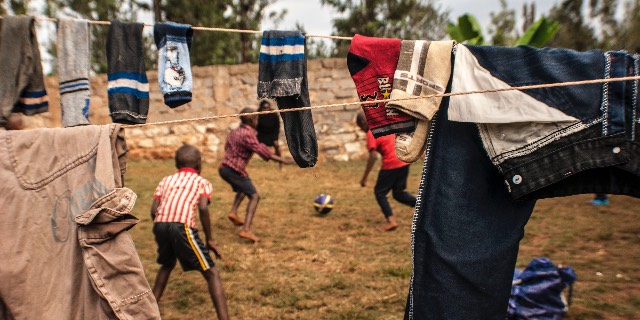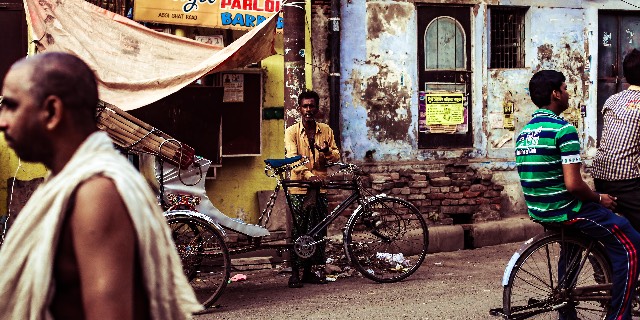Short term missions trips have risen exponentially in popularity over the past few decades. In theory, that’s a good thing, isn’t it?
Do mission trips really help? While many people going on mission trips have good intentions, they can sometimes be more of a hindrance than a help. It is good and biblical to respond to the needs of other people, however, you have to learn to respond appropriately to their needs. So, mission trips can be both helpful, and hurtful, and you need to use wisdom to learn the difference.
In this post, we will explore what the Bible says about missions, and what it looks like to practically engage in cross-cultural missions without hurting the community you are trying to help.
What the Bible Says About Mission Trips
While the Bible doesn’t use the word “missions” specifically, we can see God’s instructions and intentions for us to engage in missions throughout.
We also see His compassion for the least of these, He constantly provides for the orphan and the widow.
From the Great Commission passages in the gospels, through the Pauline Epistles and even various Old Testament passages, we can clearly God’s missional and serving character, and we want to reflect that.
Go therefore and make disciples of all nations, baptizing them in the name of the Father and of the Son and of the Holy Spirit, teaching them to observe all that I have commanded you. And behold, I am with you always, to the end of the age.
Matthew 28:19-20
For “everyone who calls on the name of the Lord will be saved.” How then will they call on him in whom they have not believed? And how are they to believe in him of whom they have never heard? And how are they to hear without someone preaching?
Romans 10:13-14
Religion that is pure and undefiled before God the Father is this: to visit orphans and widows in their affliction, and to keep oneself unstained from the world.
James 1:27
Now if you obey me fully and keep my covenant, then out of all nations you will be my treasured possession.Although the whole earth is mine, you will be for me a kingdom of priests and a holy nation.’ These are the words you are to speak to the Israelites.
Exodus 19:5-6
As shown through these passages, it is biblical to go, spread the gospel, and help those in need. The gospel is part of God’s redemptive story that he has been working out since the beginning, and we want to share that with people.
We want to provide for the least of these and provide for them the best we can.

However, the point is to actually be helpful. There is no question as to whether God wants us to spread the gospel and help those who are in need, the question is how do we do it in a way that is actually helpful? And what is our role in this mission?
Do Mission Trips Help Help? Sometimes, Use Wisdom.
As with many things in life, there is a right way, and a wrong way, to do short-term missions, and it is important that we learn to recognize the characteristics of each.
However, to understand how to help, you first need to understand what the community needs in the first place.
According to Steve Corbett’s book “When Helping Hurts,” there are four key things you need to understand before diving in to help a community.
First, you need to understand as a general principle that the goal is not to create a community dependent on outside forces for their prosperity. You want to preserve their dignity and confidence in their ability to support themselves.
Second, instead of looking at what the community doesn’t have, look at the resources that they do have and empower them to use those resources and work together to create change.
Once you recognize what they do have, and what they are capable of, then you will be better able to understand the true needs of the community.
Third, understand that because of the culture that we come from here in America, we understand poverty to be a lack of material things, food, water, clothing and shelter.
However, there is also social, emotional, and spiritual poverty, and before jumping in to satisfy physical needs, be sure to pause and realize if that is truly the kind of poverty that needs to be addressed in that situation.
Finally, after looking at all the factors, you need to determine what kind of intervention would be the most appropriate, relief, rehabilitation, or development. Relief to provide aid for immediate needs, rehabilitation to restore a community after some form of disaster, and development for communities that are struggling in a more general sense.
Now that we understand some key concepts about addressing the needs of an impoverished community, let’s look at some examples of helping and hurting.
Ways That Mission Trips Hurt
Jesus came not to be served but to serve, and when we are attempting to provide aid to a struggling community, we want to do it in a way that is truly serving them.
Building a dependent relationship does not help the community. It doesn’t help them solve the problem it only eases symptoms of the problem.
It is a temporary fix that doesn’t last and creates no incentive to make things better, it just makes it tolerable to stay complacent. As soon as you stop providing aid they will be back where they were before, nothing will have changed.
In communities that have just been destroyed by political unrest, losing family members and friends doesn’t need financial or material support, it needs people to be there to help them cope with the loss of those closest to them, a social/emotional poverty.
Ultimately it is understanding the true needs of the community, not the surface appearance of things, that will coax impoverished people out of their poverty.
Examples Of Mission Trips Hurting
From Toxic Christianity by Robert Lupton, one campus ministry spent enough money on a short term missions trip to Central America to pay two local painters, two full-time teachers, and buy new uniforms for the entire student body.

There used to be a thriving clothing industry in an East African country, however, now that we donate so many clothes to this part of the world, these businesses have had to close down, resulting in job loss and an even worse economy.
Ways That Mission Trips Help
As we talked about previously, the ultimate answer is to understand the community well, before jumping in to “help” in ways that may or may not be truly valuable.
Be sure you are addressing the appropriate form of poverty, social, emotional, physical/material, and spiritual, and that you are addressing it in the right way.
These trips aren’t intended to ease your conscience so don’t go simply to provide material wealth and money to make yourself feel better. Be willing to help in ways you perhaps didn’t realize they needed.
If you want to check out mission trips you can go on, click here.
Example Of A Mission Trip Done Well
Darren Carlson shares on the Gospel Coalition a story of success with short term trips. Carlson was familiar with a ministry in India and good friends with the pastor.
By partnering with this ministry they were able to send largely just funds to help with the launching of several new churches among unreached people groups.

They did send a few individuals short term. They were able to support the ministry long term while being aware of their needs and giving them the resources to hire locals, providing jobs to those who really need it.
How To Use Your Missions Trip Effectively
First, to talk about this, one misunderstanding needs to be corrected. The purpose of the Great Commission is to make disciples. A short term trip for a week, even two or three, is not enough time to truly disciple anyone well.
The purpose of a short term trip is then to partner with missionaries and other local ministries and serve them as they engage with the community and spread the gospel.
Because of this, don’t expect to walk into a country and “win hearts for Jesus” on a week-long trip. Focus on serving the missionaries there in whatever capacity they need. This is where poverty enters the picture.
One of the ways that you may be able to help effectively is by helping people get connected to the missionaries and other local ministries that they partner with by helping to provide aid to impoverished communities.
Be a light in those dark places and when people start to ask questions you will be able to connect them with preexisting ministries that will point them to the gospel.
A Word of Warning – Discerning Your Motivation
One thing to keep in mind as you are considering going on a short-term mission trip is your own motivation. Perhaps this goes without saying but you need to be sure that you are going for the right reasons.
If you are going because you feel that God is calling you to do so then do it. No negotiations, just obedience. Know that you will be stretched and commit to giving him your full “yes” every time.
If you are going to feel good about yourself for helping others, this is not a good reason to go. One of the major requirements for all Christians, but especially missionaries is to have a heart of humility.
If your decision sprouts from your own sin nature towards pride and selfishness then you need to prayerfully consider your decision.
You cannot be an effective light in the community if you are concerned about yourself and what you are getting out of it.
The gospel is the most selfless story ever told and if you can’t live it out without giving full glory to God, you should probably take some time to think about that and what that means.
Financial Support
One final thought to consider. How much does it cost for you to go on one of these short term trips? How about for your whole team? Are you truly stewarding that money wisely by going yourself?

There are definitely occasions where it is appropriate for you to go in person, however, as we mentioned before, you don’t want to go and do things that the natives could have done for yourself.
As in the example from Central America, it may be better for the community to provide funds, not physical labor.
By sending funds you open the door for hiring locals who need work to provide for their families and give them the opportunity to get involved with the ministry. This, although it is not the option we are used to thinking about, may be the better one for the community.
Ask Yourself These Question Before Going On A Mission Trip…
At the end of the day you have to make a choice. Be sure to ask yourself:
- Why am I going on this trip?
- What would I be doing and am I taking over the role of a local?
- Would my money be more effective if I sent funds instead of myself?
- Am I fulfilling true needs of the community?
It can be tempting to ignore the true needs of the community, even if you do have good intentions, but you need to resist that urge. Do your research and understand the community your are looking to go to.
Make your decision with their best interest at heart. And always pray, asking God for wisdom and discernment for your decision.
Resources About Short-Term Mission Trips
If you are interested in learning more about short term missions and how to do them effectively, check out one of these books for a deeper dive into helpful, not hurtful, short term missions.
- When Helping Hurts: How to Alleviate Poverty Without Hurting the Poor…And Yourself by Steve Corbett and Brian Fikkert.
- Toxic Charity by Robert Lupton.
- Dead Aid by Dambisa Moyo.
- Serving with Eyes Wide Open by David Livermore.
I hope you will find these resources helpful & learn more about short-term mission trips through them.

